Apapyrus scroll from the time of Ramses III records the trial of assassins who were plotting to kill the king.

Even though the mummy of Ramses III has survived to the present day, it was still unclear to Egyptologists and historians whether he had been murdered or not. This was because the mummy had never been properly studied—never, that is, until the 21st century. In 1886 and 1902, some of the bandages had been removed, but the whole was not visible.
The Old Way—with X-Rays
In the early days of mummy studies, bandages were removed in order to allow scientists to determine how the mummy had been wrapped. At the same time, they were able to examine the body. This method of study, however, could cause damage both to the mummy and to the bandages. Once x-rays became more common and cheaper, scientists began using them to study mummies without having to unwrap them.
Esta historia es de la edición September 2017 de Dig Into History Magazine for Kids and Teens.
Comience su prueba gratuita de Magzter GOLD de 7 días para acceder a miles de historias premium seleccionadas y a más de 9,000 revistas y periódicos.
Ya eres suscriptor ? Conectar
Esta historia es de la edición September 2017 de Dig Into History Magazine for Kids and Teens.
Comience su prueba gratuita de Magzter GOLD de 7 días para acceder a miles de historias premium seleccionadas y a más de 9,000 revistas y periódicos.
Ya eres suscriptor? Conectar

Worshiping Heaven
For almost 500 years, emperors of the Ming and Qing dynasties offered sacrifices and prayers at the Temple of Heaven in Beijing.
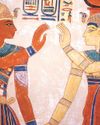
Peace Reigns
The news spread throughout Egypt—a new pharaoh, Ramses III, now sat on the throne.
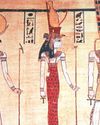
Problems To The East
Ramses III, the second king of Egypt’s 20th Dynasty, is viewed as Egypt’s last truly great pharaoh.
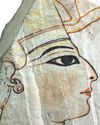
The Successors
Following the death of Ramses III, eight pharaohs, all named Ramses, ruled Egypt.
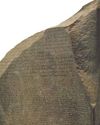
Stone Code
Hundreds of ships, led by the French general Napoleon Bonaparte, sailed from France in May 1798 on a secret mission.

Up & Away!
Eclipse observers often face unexpected difficulties, sometimes on their way to their chosen sites and sometimes at a site itself.

Edison's Eclipse Adventure
Thomas Edison (1847–1931) is the best-known inventor in American history.
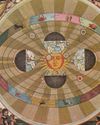
Digging Up Copernicus
The scientist “who made the Earth a planet” is how the Harvard-Smithsonian astronomer Owen Gingerich refers to Nicolaus Copernicus (1473–1543). Copernicus’ path breaking book, On the Revolutions of the Heavenly Spheres,challenged the centuries-old belief that the Earth stood stationary at the center of the cosmos.
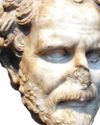
Demosthenes & Cicero
Even today, more than 2,000 years after they lived, Demosthenes and Cicero are still considered two of history’s most outstanding orators.
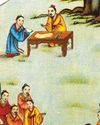
Confucius & Socrates
Some teachers are so inspirational that their influence lives on long after they die.